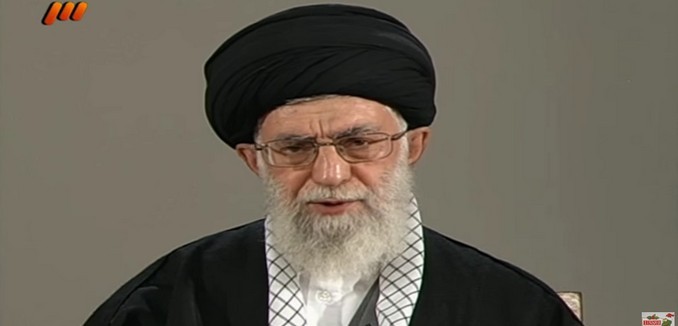The Associated Press on Sunday reported that efforts in Lausanne, Switzerland to seal a nuclear framework agreement with Iran are being hampered by continuing Iranian demands regarding research and development of enrichment technology. The P5 +1 countries – the United States, Britain, France, Germany, China, and Russia – are calling for firm restrictions on Iran’s activities for a decade and then a gradual easing of them. They also want to prevent Iran from conducting research on advanced centrifuges, which would be able to enrich uranium at a much more rapid clip than current models. Leaked rumors of concessions from the Iranians have yet to include any suggestions that Tehran is willing to budge on those issues.
There is a history to Iranian intransigence on this issue. In April 2014, Supreme Leader Ayatollah Ali Khamenei said, “Consent was given to the nuclear talks in order to break up the hostile atmosphere created by the hegemonistic [sic] front against Iran, but all people should be aware that despite the fact that the talks will continue, the Islamic Republic of Iran will not halt its activities with regard to nuclear research and development.”
The AP article also reported that Iran continues to push back against intrusive inspections, a critical component of the sort of verification regime that the Obama administration has floated, and has insisted would include unprecedentedly robust measures. The Iranians have repeatedly denied the International Atomic Energy Agency (IAEA) access to their military base Parchin – where the international community believes the Iranians conducted work relevant to the detonation of nuclear warheads – and has answered only one of out 12 questions put to it about the IAEA concerning possible military dimensions (PMD) of its nuclear program. Earlier this month, IAEA Director General Yukiya Amano said that, because of this consistent stonewalling, his agency cannot conclude that the Iranian program is exclusively peaceful.
Obtaining information about PMDs is necessary to establish a benchmark of Iran’s program in order to verify any nuclear agreement. Without full disclosure from Iran on PMDs, it would not be possible to know the extent to which Iran had shut down its uranium mines, shipped off its uranium stockpiles, and stopped its centrifuges from spinning: in other words, verification will be impossible. David Albright of the Institute for Science and International Security has written, “A deal that does not include Iran addressing the IAEA’s concerns about the past and possibly on-going military dimensions of its nuclear program would undermine the verifiability of the deal, and thus the credibility of a comprehensive deal.”
U.S. Secretary of State John Kerry canceled a planned trip to Boston Sunday night in order to stay in Lausanne and attempt to make progress in the talks.
Traditional American allies in the Middle East meanwhile heightened their criticism of rumored concessions being made to Iran. Israeli Prime Minister Benjamin Netanyahu blasted the potential agreement on Sunday. “This deal, as it appears to be emerging, bears out all of our fears, and even more than that,” he said.
[Photo: Nowruz Irani / YouTube ]




